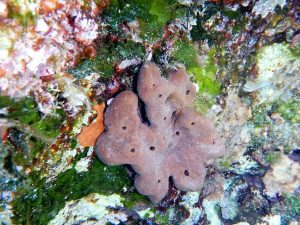The most important aspect that gets affected during disasters is human connectivity. In this regard, APAN (Asia Pacific Advanced Network) has been very much instrumental in making the lives of the research community better and making it more comfortable

By Dr. Tanushree Mondal
Assistant Director of Medical Education, Government of West Bengal
Contributions From APAN During Disasters
First published 21 December 2020 https://www.chdgroup.org/policies/contributions-from-apan-during-disasters/
"The General Manager of APAN, Dr Markus Buchhorn is very hopeful that with the passage of the time, APAN can contribute more and more in this uncharted domain and can make an important difference to the broader community and benefit society through that"
APAN (Asia Pacific Advanced Network) is a network that connects research and education networks of various economies to one another and this makes it possible to build appropriate networks.
Among the activities of APAN, some are to provide forums for network engineers to build new applications, operate a fellowship program in support of it, adoption of advanced network technologies and regular updating of links, thereby improving the global cooperation from countries like Europe, North and South America, Africa and Arabian countries as well.
In pretty much every country there are research networks that connect all the Teaching institutions, the college, the hospitals, the museums, the cultural institutions on a common platform, the National Research Education Networks (NREN), either deployed by the Ministries of the respective Governing body or through the Universities. What APAN does is partnering of all the NREN in 3 out of the top 5 leading economies of the world, spanning more than half of the world’s population, including many contributors and link owners in a loose and volunteer-based manner. It stretches from Pakistan in the west to Japan in the east and down to Australia, New Zealand in the south. So, it spans the least developing to the most developed countries, creating multiple freeways. It hopes to extend its domain more in the pacific Islands one day. These networks are the need of the hour while harnessing resilience against disasters. These networks help in moving large data sets and stand unique in their approach for their Out -of-the -Box Thinking and promulgation of Best Practices wherever and whenever they can.
In the remote past, the Disaster Mitigation Working group of APAN collaborated with the UNESCO under the project Connect Asia and promoted gentle partnerships with economies all around and engaged in case studies, numerical simulations, simulation practices and collaboration models and tools. Their domain was far fletched ranging from floods to droughts, Earthquakes, Tsunami, Fires, Smoke, Typhoons, Dust etc. So, in the face of such a Disaster, APAN stands by establishing multiple paths as a way of robust reconstructive and mitigation activity. APAN has the capability of providing such pathways specially during disasters ex. downloading or else uploading terra byte of data on Climate data in Modelling typhoon in the event of a disaster rapidly, running models with artificial intelligence which is in fact a transformative step in restoring and saving lives in a matter of few minutes. It also means accessing Disaster Response Networks by deploying such networks in places which faced a disaster. For ex. An Ad hoc network or a mesh network in the Philippines to support the responders in the region that replaced the local mobile network. In such a way, these networks deliver information, computing capacity whenever required. Such has also been shown in the clinical context of Covid-19 in 2020 through sharing of data. These information help bring in the necessary resources to the places that require the most, thus building resilience of research and science and technology in the support community. So, when such events occur in the future, these resilient networks come to play forefront with their armamentarium.
APAN conducts two meetings in a year crossing the Asia Pacific regions, the last was the APAN 50 at Hongkong in the year 2020, and the next upcoming is the APAN 51 at Islamabad, where there is a whole lot of knowledge sharing and learning between the researchers, the end-user community, the educators, and with the involvement of all its working group ranging from Agriculture, Earth system and sensing, Astronomy, culture, Disaster Management, Medical wing etc.
Much remains undiscovered when it comes to the contribution that APAN has left on the lives of the educators all around the globe, especially during the time of natural disasters or man-made calamities. Though the objectives of APAN have always been to uplift the education and research globally taking it to the next dimension, but it has unknowingly contributed to the medical world time and again, such as during the SARS outbreak, Bird Flu and most recently during the covid-19 pandemic by building human knowledge networks. During the SARS outbreak, when hospitals were all locked down, NREN community built a video-conferencing and IPV6 infrastructure, for the patients, doctors, visitors, administrators to communicate within and outside their community, helping diagnose and provide utmost care and support to its beneficiaries. So, this is one such model that could be replicated in the recent times, as and when required. APAN over time through its collaborative approaches will scale up better for the welfare of communities.


